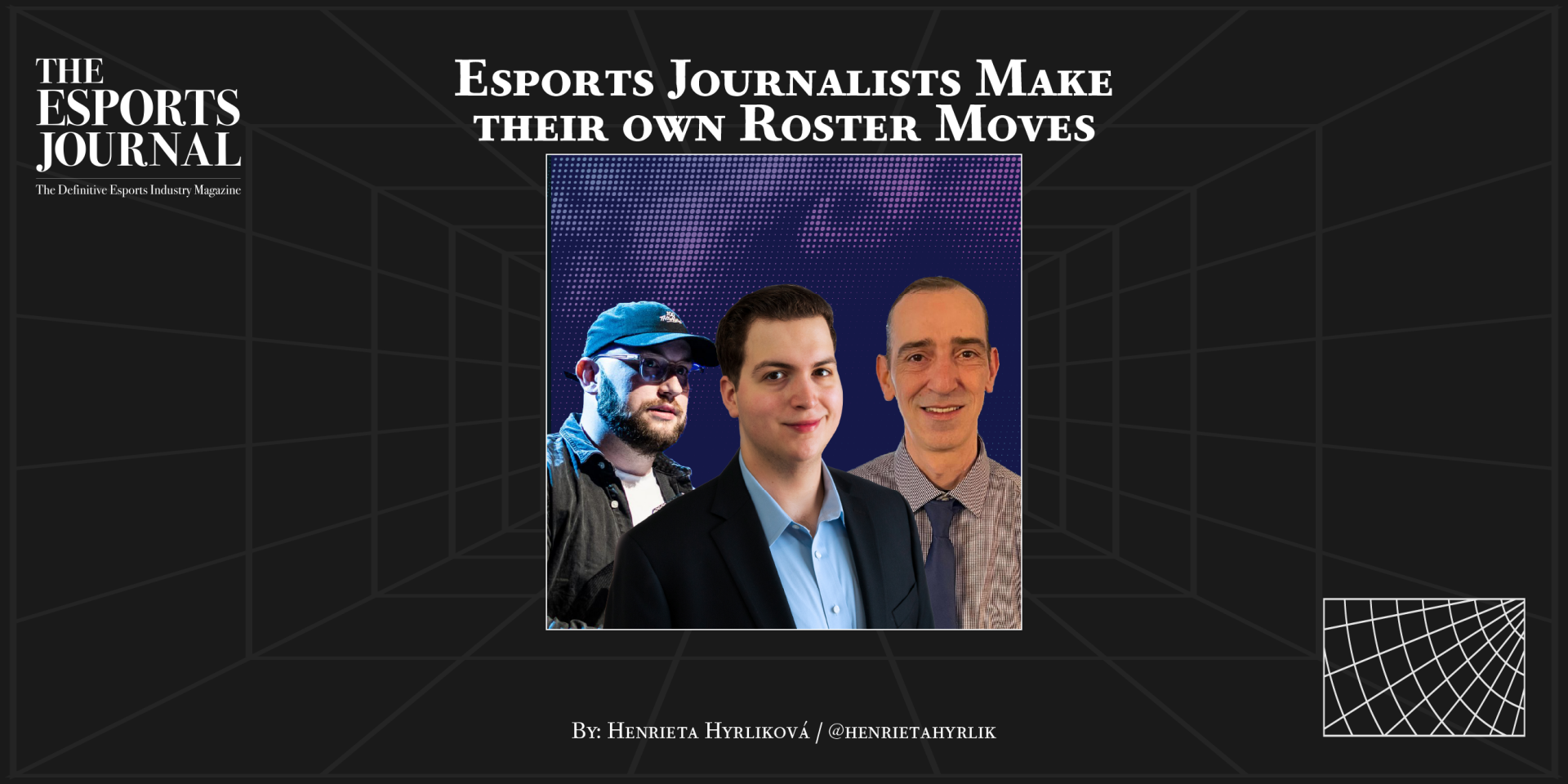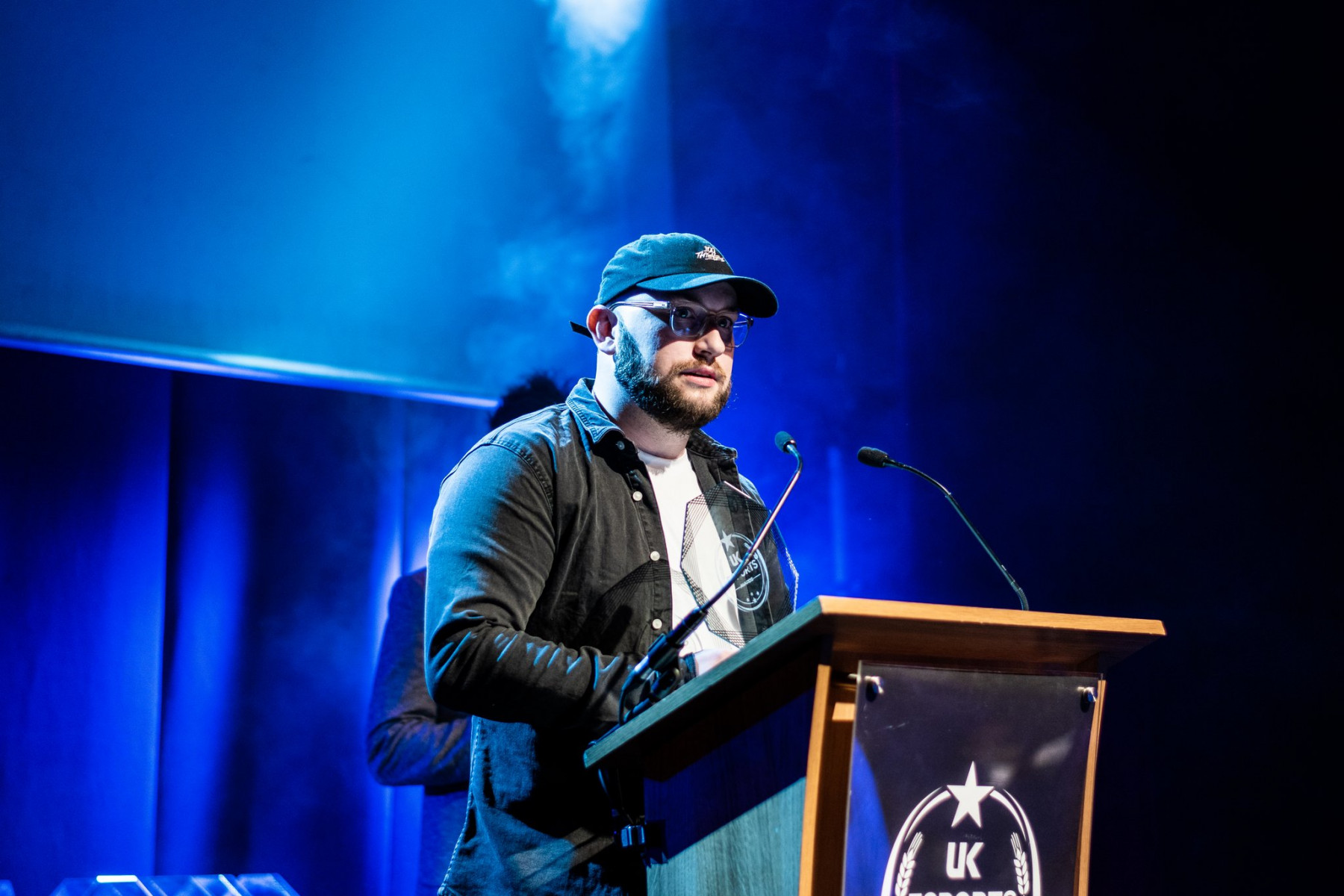
“Journalism can never be silent — that is its greatest virtue and its greatest fault.”
As American journalist and diplomat Henry Grunwald said, the nature of journalism is to point out injustices in the world — and that nature is the exact same thing that can sometimes halt its admirable efforts.
In esports journalism, many have become increasingly vocal about the landscape of media lately, generously criticising the fundamentals of how the majority of currently active esports-focused publications function.
Coinciding with the wave of criticism, the sector has been through what is likely its biggest personnel shift in recent history. As 2022 dawned, numerous prominent esports journalists & editors left their publications to either work for someone else, work on their own projects, or to leave the space completely. Former contributors of The Esports Journal HB Duran and Adam Fitch joined the likes of James Fudge, George Geddes, and Jacob Wolf.
Even Christopher Hana, Co-Founder & former Chief Executive Officer of The Esports Observer decided to step down from his position to join the executive team of Epics Collectibles, a platform for digital and physical esports trading cards.
Fundamental issues
Mainstream media faces its own myriad of controversies, so it’s no shock that esports publications have their own share of problems. Click-chasing, insufficient business models, underpaid writers, immense grinds, and anonymous leaker Twitter accounts are but a few of the profession’s common woes.
To gain a better insight into the current landscape of esports journalism, The Esports Journal spoke with some of the well-known esports journalists that recently made moves and left their previously associated publications to pursue new endeavours.
They were not very optimistic.
“There’s a lot of talented people working in the industry, but not too many companies successfully monetising their content,” said Jacob Wolf, current Founder & Executive Producer of production studio overcome, formerly Chief Reporter & Investigative Lead at Dot Esports. Wolf also had a stint at the now-defunct ESPN Esports experiment.

RELATED: Currencies & Complexities: Navigating esports pay-ins-and-outs with Nuvei
“That can often lead to poor working conditions or lack of resources to help those talents develop. It’s a really nuanced discussion, but free-for-consumer, advertiser-supported content is a really tough business model for a tech savvy industry that has ad blockers — or even worse — doesn’t click-through on social media to read articles at all. I also believe the esports audience don’t like paying for content without some sort of parasocial relationship, which makes paywalls tricky too.”
Given the specifics of the target demographic, it seems as if the business model most commonly used by esports publications was also the most difficult one for them to succeed at. Consequently, publications with this type of business strategy may have no other option than to lower their standards in order to survive.
Adam Fitch, newly crowned Head of Content at Hitmarker and former Business Content Lead at Dexterto, put it characteristically bluntly: “A lot of publications are now views-driven to a point where they’re soulless entities with no real moral compass or tone of voice. They exist just to chase readership and subsequent ad revenue.”
That said, this particular issue is not exclusive to esports publications, as ‘audience-chasing’ has been traditionally imperative for media and companies beyond the sector. At present, the chase is a common element within the business strategy of any company that is serious about staying relevant in the online space. In any case, execution is the decisive factor.
To make matters worse, numerous Twitter leaker accounts focused predominantly on the European League of Legends scene have emerged recently, creating an unexpectedly strong contender to even the most established publications for the audience’s attention.
According to Fitch, this phenomena seems to be more esports-unique. “Esports fans now allocate the same trust to anonymous Twitter leakers as they do to veteran, well-respected, and hard-working journalists,” he said. “That’s demoralising and made me wonder why I was putting my reputation on the line with each report.”
Countless times, rewritten press releases and identical stories published across the majority of esports media daily with minimal superficial difference is what appears to be the current image of esports journalism. There’s a term for this modern phenomenon — churnalism.

Fitch’s disappointment with the current state of esports journalism runs deeper than Twitter accounts stealing views. “In the West, there are maybe six or seven journalists who pursue important stories. The rest are happy coasting by churning out rewritten press releases or are simply fans who are doing what they can to get closer to people in their favourite game or scene.
“The same, generic interviews are released every week and roster move reporting is the lowest-hanging fruit in the original reporting game, yet often gets celebrated more than serious investigative work. It’s bleak.”
Whilst all of the aforementioned is a matter of business strategy and available resources, it has an immense impact on the sector’s journalists. “Most esports and gaming journalism jobs are grist mills that grind people down due to long hours, low pay, and general lack of care from editors who are supposed to be helping them find their voices and make them better writers,” said James Fudge, former Editor at The Esports Observer. “Many seasoned journalists I know are tired of the soulless grind and the lack of respect for their skills and knowledge from their bosses.”
In any industry, such conditions rarely lead to a good-quality product. The relatively low bar for entry, and lack of journalistic experience required are frequently listed as additional factors that contribute to the quality of esports journalism.
“We need to get away from ‘the grind’ mentality and learn how to be better journalists, gain the skills to craft better copy, become bold in our critical thinking, unleash our creativity, and be comfortable with rocking the boat to tell the truth,” Fudge said.
[primis_video widget=”5183″]
RELATED: The little Esports Island that could
In search of better options
One of the unexpected consequences of the global pandemic was the swift rise of the anti-work movement, which gained traction on Reddit and resulted in encouraging millions of people around the world to quit unsatisfactory jobs.
Because the timing of the movement coincides with the timing of the exodus in esports journalism, one might assume that these two phenomena must be connected. Fitch dismissed that idea. “I don’t think the anti-work movement is attached to the recent journalist shuffle,” he said. “While the pandemic has helped people to realise there’s more to life than spending half of their waking life working — these moves, in general, have been due to a variety of reasons.
“From workplace disputes with higher management to just wanting something new, I truly believe this shift is highly coincidental, to the point where I had people ask me if we were all starting or joining the same publication!”
Fudge acknowledged that there’s a difference between staff writers quitting, and high-profile departures. “Like game development workers, some journalists are waking up and rejecting putting up with abuse and soulless, low-paying jobs because of prestige and exposure. You can’t buy a loaf of bread at the market with either of those things.”
On the contrary, a lot of the high-profile departures over the last several months are, in his view, just people seeking better opportunities or to dedicate their full attention to passion projects.
Fudge himself quit The Esports Observer due to his desire to help aspiring journalists. “After helping to get esports on the cover of Sports Business Journal Magazine for the first time in its 20-year-long history and doing my part to help TEO win the Best Esports Coverage Site of the Year award for two consecutive years in a row, the timing felt right,” he said.
“Ultimately, I want to return to the vital work of helping new writers become better at their craft and find their voices. If you are an editor who is not challenging your writers to get better then you should probably quit your job because you are useless in the space and in it for the wrong reasons.”
Likewise, Wolf left Dot Esports to delve into filmmaking and podcasting in his own production company. Only Fitch is explicit about his departure from publication. “I worked for impact and not for viewership.
“I refuse to play the game any longer as the rules have shifted to a place where it’s still a loss even if you win. The pursuit of truth is no longer the priority at publications and that’s why we’re seeing incredible mainstream journalists leave the ecosystem to go independent.”

Going independent
Despite all of the underlying issues that torment esports journalism, it’s not all doom and gloom. Perhaps thanks to those issues, the industry is moving towards a new model.
At present, the biggest opportunities in esports journalism seem to be opening to those who’ve built their own brand well over the years. Names like Jake Lucky and Mark Cai are just two examples of rising independent esports reporters with quickly growing audiences.
According to Fitch, the profession is heading towards independence. “As the reading audience in esports grows, so does the opportunity for journalists to go independent via Substack, a podcast, and maybe a YouTube channel. This kind of media is free of the constraints and nonsense placed upon them by publications, so that they can work to solely do their job well.”
It is true that today’s online content is ruled by well-built brands, however, not all writers and journalists aspire towards making their persona also their business. For many journalistic newcomers, there’s something strangely comforting about being roofed by an established publication. The association with an outlet can not only help with building reputation, but it can also act like a shield against targeted internet hate, and more importantly, provide a pathway towards more lucrative job opportunities.
Independent or with a publication, what current esports journalism could certainly use more of is good storytelling and individuality. “If you’re able to break news before others, there will always be opportunities for you in journalism,” Wolf emphasised. “If you’re able to build a following by being a unique storyteller and addressing stories from different angles, your value only rises. There’s an opportunity to be different and be rewarded for it.”
Whilst it remains to be seen whether the route of independent journalism will become a desirable career path, or if it will improve the industry at all, one thing is for sure: there’s always space for high-quality journalism, regardless of its association with publications.
As for the outlets themselves, you’d think it’s in their own interest to aim for quality over quantity. How else can they survive in esports journalisms’ overcrowded content landscape?
This article first appeared in The Esports Journal Edition 10 (page 29). Read the rest of Edition 10 for free using the embed below, or at theesportsjournal.news

